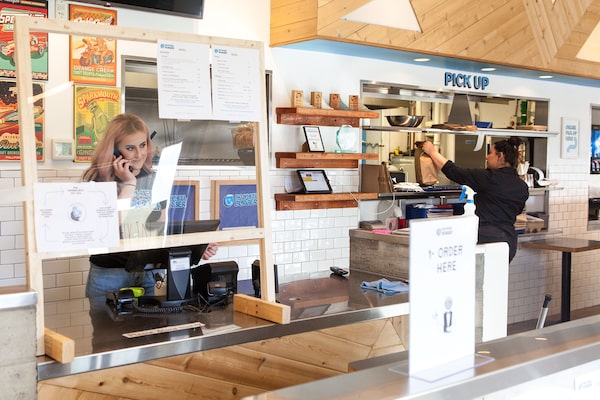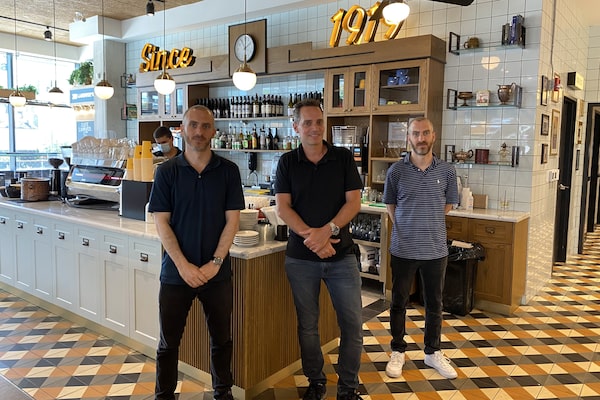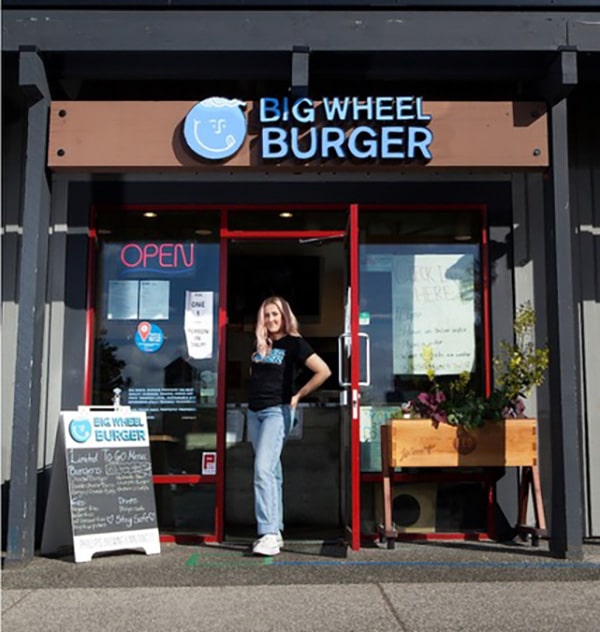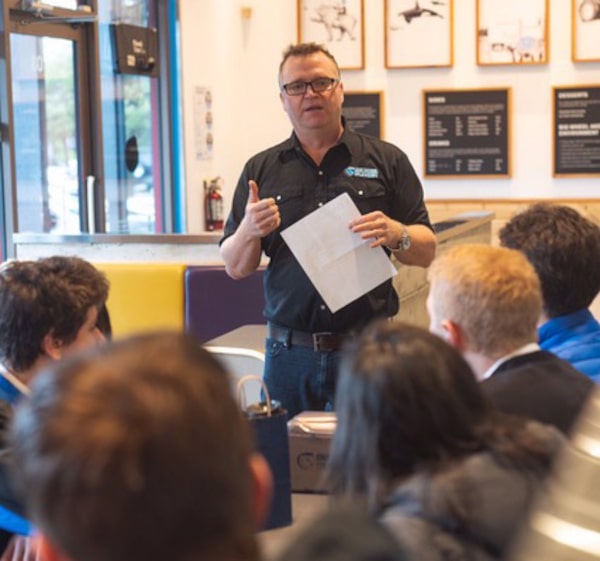
When COVID-19 hit, restaurateurs across the country, including Big Wheel Burgers, had to get creative about how they delivered food to customers.SUPPLIED
Eran Shram, owner of Toronto’s Cafe Landwer, could be speaking for the entire restaurant industry when he says the pandemic hit him like a tidal wave in March.
“Dine-in was 95 per cent of our revenue and it disappeared overnight,” he says. “My first thought was ‘what just happened?’”
Few other sectors of the Canadian economy have been hit as hard or as fast by lockdown measures introduced to curb the spread of COVID-19.
Even now, as some degree of normalcy returns, more than 50 per cent of restaurants are operating at a loss, according to a survey by the industry body Restaurants Canada. Of those, nearly half anticipate it will take over a year to return to profitability.
But the grim statistics belie the resilience and adaptability shown by restaurateurs across the country, who’ve embraced the brave new world of takeout, pivoted to retail or signed up to feed frontline workers.
In the case of Shram and his Israeli-inspired restaurants, it’s all of the above. Cafe Landwer launched a grocery delivery service in April, at the same time as it began providing 30 meals a day to the staff of Toronto’s Mount Sinai Hospital.

Eran Shram, pictured middle, says customer feedback has been crucial to revamping the Cafe Landwer menu for a post-COVID world.SUPPLIED
“It helps frontline workers, it keeps our staff busy and it feels good to contribute,” Shram says.
The cafe also relied on feedback from its community of regulars when it came to adapting the menu for delivery and takeout. Shram and his chefs even worked out a way to make shakshuka, a popular one-skillet recipe of eggs baked in tomato sauce and spices, portable. They decided the best way to deliver it was by using a different takeaway container and experimenting with different egg poaching times.
“We have loyal customers, which is helpful: they gave us lots of input,” he says. “If there was criticism of a certain dish, we would tweak it, make it bigger or smaller or adapt the packaging to make sure it worked.”
Across the country on Vancouver Island, Calen McNeil has taken the community focus even further. His four-location chain of quick-service restaurants, Big Wheel Burger, was already focused on carbon neutrality, community involvement and buying local, but McNeil took the pandemic as an opportunity to ramp up these commitments.

SUPPLIED
“We set up our Community Foundation a few years ago to support organizations like the Victoria Hospice and [youth mentoring non-profit] Big Brothers, Big Sisters,” McNeil says. “So when COVID hit, we decided to start delivering food to frontline workers, the local homeless population and other people in need. We basically switched our model to be a bit more like a social enterprise, while still being profit-focused.”
“Profits take care of themselves if you focus on your community, your environment and your employees,” McNeill adds.
On top of delivering food to around 50 families per week and raising $15,000 a month for local charities, Big Wheel has supported its employees by applying an auto-gratuity to all orders and adding a COVID bonus to staff pay cheques, an addition to the above minimum wage salary they were afforded pre-pandemic.
McNeill notes that cultivating strong working conditions has been key to keeping his staff around despite industry turmoil. And ensuring that his restaurants are working efficiently is part of this endeavour: When lockdown first went into effect in March, his first step was to shut down for two weeks in order to create a comprehensive COVID-19 operating plan.
Rather than pay the standard fees associated with delivery apps like Uber Eats, which can be upwards of 30 per cent of an order, he worked with local developer Moduurn to create his own, lowering the service fee to 12 per cent. He now has delivery up and running successfully on the app.
“One of the big things for us has been reacting quickly and adapting quickly,” McNeil says. “If a restaurant owner waited too long, and now they’d be playing catch up, which is a lot more difficult.”

Calen McNeil, owner of four-location chain Big Wheel Burgers, says cultivating strong working conditions has kept his staff around during the challenges of the pandemic.SUPPLIED
He adds that none of this would have been possible without having firm financial footing. During times of turmoil, he sought guidance on federal loan programs and cashflow management from CIBC. “Compassionate banking was the key,” McNeil says. “A very stressful time was made easier.”
For Shram, receiving loan deferrals from CIBC was also key to managing Café Landwer’s cash flow – affording his team more time and energy to focus on revamping their menu and staying open.
Four months in, it’s clear that this approach has worked for both restaurants. Despite strong headwinds, Landwer and Big Wheel both proceeded with opening new restaurant locations during the pandemic. McNeil even has plans to open a fifth location, a takeout-focused trailer built alongside a community garden.
“The model of discount food and cutting costs wherever you can isn’t going to work anymore,” he says. “It’s restaurateurs with values who are going to be successful.”
Advertising feature produced by Globe Content Studio. The Globe’s editorial department was not involved.